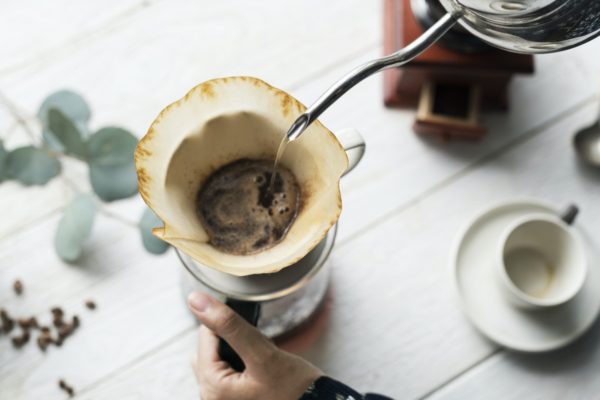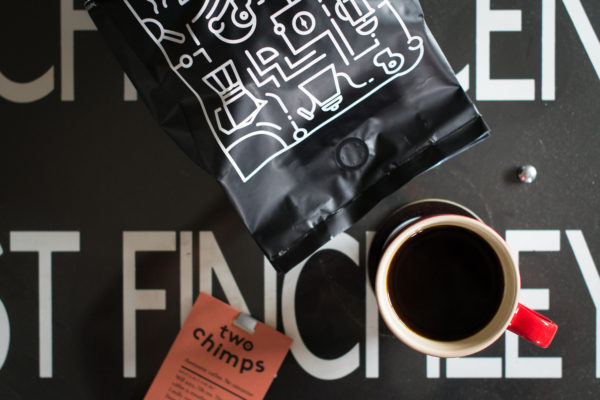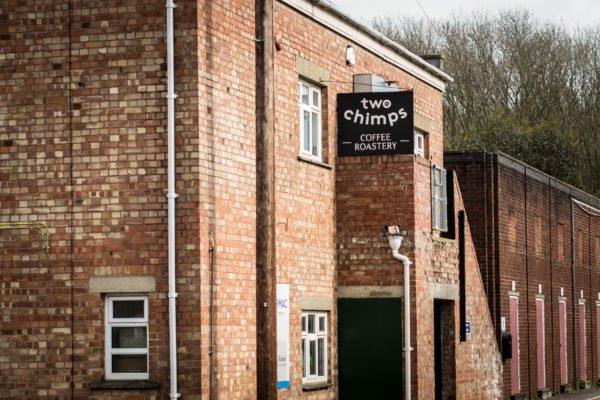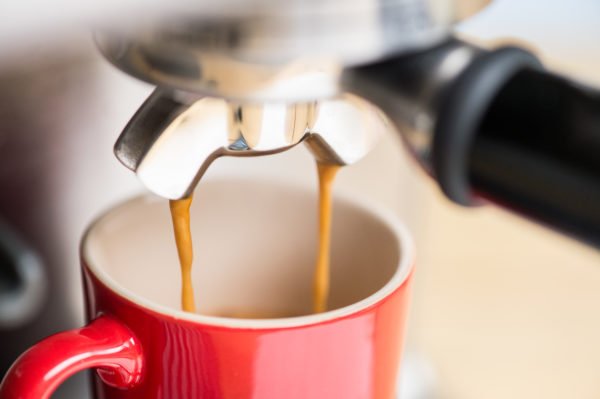
Think of that rich, chocolatey aroma. That pecan-coloured pool swirling in your mug. And that irresistible taste…
We think someone is on their coffee break!
Whether you press pause for elevenses or need an afternoon pick-me-up, coffee breaks are always a good idea. And we’ve found a way to elevate our caffeine fix: speciality coffee! But what is speciality coffee (or ‘specialty’, as it’s called in the US). You might have seen the term on coffee shop menus and wondered, “is it coffee that’s just… special”? It turns out A* coffee is no mean feat. We caught up with Andy Cross from Two Chimps Coffee to find out what ‘speciality’ really means – and why you need to drink it!

Growing speciality coffee
Coffee beans grow inside coffee cherries, which go from green to pink to red as they ripen. To ensure that every bean is harvested at the peak of perfection, speciality producers pick and sort every bean by hand. Only perfectly ripe cherries make the grade – cherries that are dark red in colour and glossy like a jewel.
“Ripeness is vital – it’s one of the key factors setting speciality coffee apart,” Andy tells us. “Think back to those late summer afternoons spent blackberry picking. Remember screwing up your face at the bitter taste of underripe blackberries? Unripe coffee cherries are much the same.”
These unripe cherries find their way into some supermarket coffee. Commodity coffee beans are often strip-picked to give a jumble of ripe, unripe and vinegary-tasting overripe beans. Large-scale roasters must then over-roast to mask the sour flavours in their imperfect beans. Ever found store-bought coffee to be too bitter? Here’s your reason: it was probably over-roasted.
Ethical coffee

If you’re looking to keep things ethical, you need to make the switch to speciality. It’s no secret that producing top-grade, hand-picked coffee costs more, but you really do get what you pay for. Unlike mass-produced coffee, speciality importers value quality over quantity. They often exceed Fairtrade standards and go the extra mile to make sure farmers get a fair price. Take the Two Chimps roastery, for instance. They pay between 30 and 150% more for their beans than the going rate. Ethical, sustainable and unbelievably tasty: speciality coffee ticks all the boxes!
Scores on the doors
Strict grading standards ensure speciality beans are the best in the business. Certified coffee tasters called Q graders – the sommeliers of the coffee world – rate the beans out of 100. They must score 80 points or above to qualify as speciality. The graders first look for bean defects before blind tasting the coffee in the cupping process. They assess every part of the coffee experience: flavour, aroma, acidity, body, aftertaste…
Interesting, one-off coffees get top marks; coffees that taste vibrant and fresh and a little bit quirky. Perfect for coffee break-ing in style!
Roasting
Speciality coffee beans then make their way to a small roastery like Two Chimps Coffee, which you’ll find nestled in the county of Rutland (on the site of an old prison, as it happens!). Skilled roasters work hard to fine-tune roasting recipes that deliver the true spirit of the beans. For Andy, roasting is an art form that’s always evolving: “I roast by hand to bring out the very best natural flavours in the beans. Assessing the unroasted beans for moisture and density means I can tailor each roast to get it absolutely spot on. I use my senses, too. Coffee progresses through the grass, hay and bread stages as it roasts and keeping an eye (and nose!) on the aroma is one way I monitor my roasts.”
Speciality coffee beans are bursting with kaleidoscopes of flavour, and great roasting puts these flavours centre-stage. From fruity, berry-ish coffees to deep-tasting beans that remind you of chocolate (yes please!), proper roasting lets natural flavours shine bright!
How to enjoy coffee at its best

When it comes to coffee, fresh is best. No question.
Take a look at some supermarket coffee. Is there a roast date printed on the bag? Probably not. That’s because commodity coffees are roasted and then stored for months before making it to the shelf. Where they sit for who-knows-how-many-months more. The result? Dull, lacklustre flavour that’s nothing to shout about.
To get the best from your beans, Andy recommends drinking within 12 weeks of the roast, but sooner is better. This is why bespoke coffee subscriptions are a great idea; rather than bulk buying, you get frequent deliveries of freshly roasted coffee that always tastes great. And one final tip: don’t store your coffee in the fridge! Harsh changes in temperature are no good for your precious coffee and can make it turn stale.
So, yes, speciality coffee is coffee that’s special… but it’s also artisan, ethical, top-scoring and mouth-lingeringly delicious!
Now, where’s the biscuit tin…?
